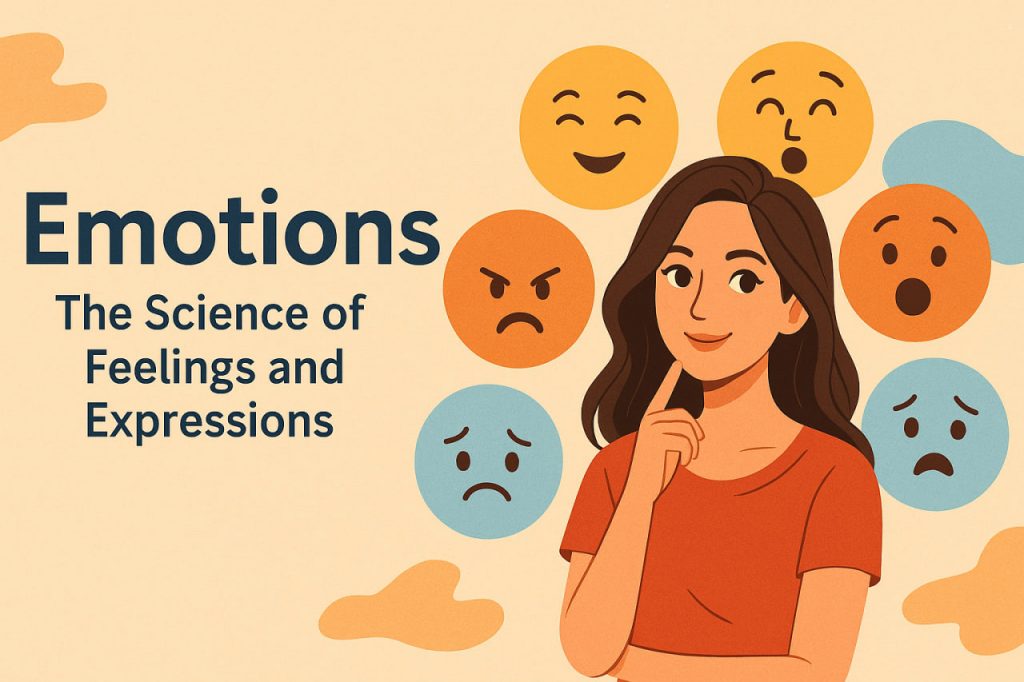Emotions are powerful internal responses that shape how we think, act, and experience the world. They influence our physical health just as strongly as our mental state, even when we are unaware of their effects. Happiness can boost our immune system and energy levels, while stress or fear can weaken the body over time. Emotions are not random—they are deeply connected to how the brain and body communicate, helping us survive, adapt, and connect with others. Understanding this relationship allows people to make healthier choices and maintain greater emotional balance.
What Emotions Are and How They Form
Emotions arise when the brain interprets events around us and assigns them meaning based on memory, biology, and culture. When something triggers an emotional response, the brain releases chemicals and hormones that affect our heart rate, breathing, muscles, and thoughts. For example, joy releases dopamine and endorphins, which create feelings of well-being. In contrast, fear activates the fight-or-flight response, increasing adrenaline and preparing the body to react quickly. According to neuroscientist Dr. Laura Kim, “Emotions are not just feelings—they are physical signals that guide our behavior and help us navigate our environment.”
Positive Emotions and Their Health Benefits
Positive emotions such as joy, gratitude, calmness, and affection can improve overall health. These emotions lower blood pressure, support the immune system, and help regulate hormones. When people feel happy or relaxed, the body reduces the production of cortisol, a stress hormone that can harm the body if present for long periods. Positive social interactions also improve emotional resilience and life satisfaction. Daily habits such as meaningful conversations, time outdoors, or creative hobbies support emotional well-being and help maintain a healthy internal balance.
The Effects of Stress and Negative Emotions
Negative emotions such as fear, anger, anxiety, and sadness are natural and sometimes necessary. However, when they become chronic, they can place strain on the body. Long-term stress may lead to headaches, muscle tension, digestive issues, or weakened immunity. Constant emotional pressure can also interfere with sleep and concentration. Psychologist Dr. Amir Delgado explains, “The problem is not experiencing negative emotions, but holding them inside without expression or support.” Learning to manage stress through breathing techniques, communication, and relaxation practices helps prevent emotional overload.
The Mind-Body Connection
The connection between mind and body is continuous and powerful. When the mind experiences strong emotion, the nervous system and endocrine system respond instantly. This means emotional health directly influences physical health. Mindfulness, movement, and social bonding help calm the nervous system and restore emotional balance. Even simple practices like deep breathing or gentle stretching can signal the brain to slow down and release tension. Health and emotional well-being are deeply linked; caring for one supports the other.
Emotional Awareness and Healthy Expression
Recognizing emotions and expressing them in healthy ways is essential for long-term well-being. Emotional awareness helps people understand their needs, limits, and reactions. Talking with trusted friends, practicing reading “smart” books, engaging in artistic expression, or spending time in nature can reduce emotional intensity and support clarity. When emotions become overwhelming or persist for long periods, consulting a specialist can help provide tools to restore balance and coping strength.
P.S. I especially recommend volunteering as a means of improving yourself and society at the same time.
Interesting Facts
- Humans can experience over 34,000 distinct emotional states.
- Smiling, even when not naturally felt, can reduce stress by activating facial muscles linked to emotional centers.
- The heart and brain communicate through electrical signals that change with emotional states.
- Laughter increases oxygen flow and boosts immune activity.
- Emotional memory can last longer than factual memory due to deeper brain processing.
Glossary
- Dopamine — A neurotransmitter associated with pleasure, motivation, and reward.
- Endorphins — Natural chemicals released by the brain that reduce pain and increase well-being.
- Cortisol — A hormone released during stress that influences metabolism and immune function.
- Fight-or-flight response — A physical reaction that prepares the body to respond to danger.
- Emotional resilience — The ability to recover and adapt after emotional stress or difficulty.


